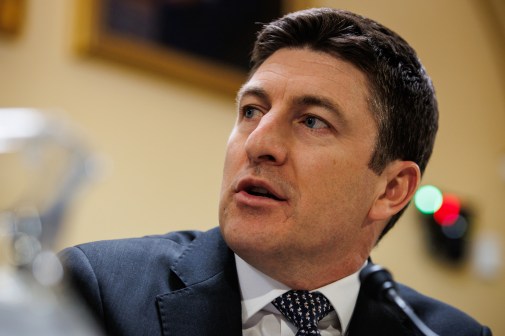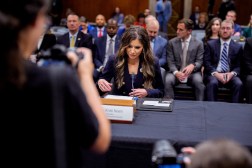Cybersecurity doubts may spook voters in future elections
A new poll says growing concerns over cybersecurity could lead to millions of Americans staying home during the 2018 midterm elections and the subsequent 2020 presidential election.
More than 1 in 4 American voters will consider not voting in upcoming elections due to concerns over cybersecurity, according to a new poll published Wednesday by the U.S. cybersecurity firm Carbon Black.
That’s a jump of nearly 10 percentage points from last year’s poll.
The doubts are sharpest when it comes to the ability of state and local election authorities to defend against a cyberattack. Less than half of voters (45 percent) trust local authorities on cybersecurity, a number reflecting last month’s report that “election-related systems in 21 states that were targeted” by Russian hackers during the 2016 presidential election.
Yet, less than half (47 percent) of American voters believed the 2016 election was influenced by foreign entities. That’s a sharp break with the U.S. intelligence community, but is in line with President Donald Trump. The president has repeatedly cast doubts on the idea that Russia meddled in the 2016 election.
However, 45 percent of American voters said they believe Russian operators “will be back” to influence the 2018 and 2020 elections.
On Tuesday, it was reported and confirmed that the president’s son, Donald Trump Jr., coordinated meetings with Russian officials in an attempt to get dirt on Democratic presidential nominee Hillary Clinton.
State and local officials resisted federal aid during the 2016 election, according to then-President Barack Obama’s Homeland Security Secretary Jeh Johnson, who testified in front of Congress last month.
DHS designated election systems as critical infrastructure prior to the 2016 election.
“To my disappointment, the reaction to a critical infrastructure designation, at least from those who spoke up, ranged from neutral to negative,” Johnson said. “Those who expressed negative views stated that running elections in this country was the sovereign and exclusive responsibility of the states, and they did not want federal intrusion, a federal takeover, or federal regulation of that process. This was a profound misunderstanding of what a critical infrastructure designation would mean, which I tried to clarify for them.”
Illinois politicians including Democratic Sen. Dick Durbin have pressed local election authorities on cybersecurity questions regarding federal aid and cooperation and security audits. So far no responses have been recorded.






